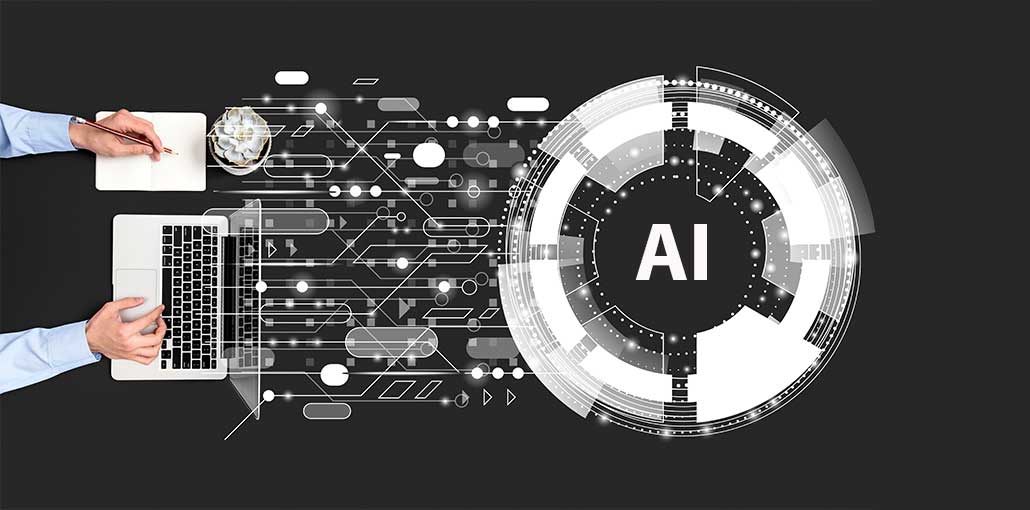artificial intelligence is transformed software development. AI is transforming software development from code to deployment. It’s helping us find a new way of inventing technology.
Algorithm-based, machine learning is used to speed up the software development cycle. AI supports developers in optimizing their software workflow at each stage of the development process.
As AI continues to bring in new developments for software developers, we can expect great things in the future. The industry will see a paradigm shift in the way developers work and how they manage their code. AI will revolutionize how developers build and manage their code. This will lead to a significant improvement in productivity, quality, speed, and efficiency.
Artificial intelligence refers to computer systems capable of performing tasks that require human intelligence. The computer must be able to sense its environment and respond to it.
AI algorithms can help improve project planning, assist with automation QA (quality control), and enhance the user experience. Recent research found that AI-enhanced development of software increased developer productivity by 10 percent.
Also read: The Most Popular Programming Languages for AI
These are just a few of the many ways AI can help you with your software development and deployment. It automates various cognitive and physical tasks.
1. Increase in the speed and scale of development
Key aspects of software delivery performance can help you judge how DevOps will evolve once AI is embedded in every aspect of it. Time-based performance indicators include deployment frequency, lead time for modifications, and time required to restore service. Deep learning and machine learning can speed up many processes, including software testing.
AI can automate the testing of software, as opposed to having them run by quality assurance specialists. This saves time and allows for more scenarios to be tested. AI is crucial to quality assurance because manual quality control has a high risk of error. AI allows a computer able to perform fast, accurate testing which reduces failure rates and speeds up the development process.
Software developers must use AI to automate processes, reduce waste and transfer repetitive manual tasks to computers that can do the job faster and better. Machine learning-backed hyper-automation platforms will automatically verify deployments, which saves even more time. Code can also be automated with AI, increasing speed and accuracy.
2. Change the Role Of Developers
AI is changing the role of software developers. While it can assist them in their code, we are still years away from the day when it will be able to write code all by itself or replace them. Developers can automate tasks and give them to artificially intelligent machines. This allows them to concentrate on other tasks and helps them develop skills that allow them to work together with AI.
Programmers can now focus on more difficult problems because AI takes on simple tasks. This is how they will change their roles. This will improve software development rather than replace it. With AI being a part of the picture, it will create a demand for software developers who can both work with AI and can code it.
AI might be able to write code in the future, but it won’t replace programmers. To write better code, software developers must work with AI. One way to collaborate is to give the more tedious parts to AI and take over the difficult parts.
Although AI can learn to code, there is concern that software developers may become obsolete. However, software development is complicated and requires a human brain to guide it.
Also read: Top 10 Artificial Intelligence Software and Which Software is Better?
3. Strategic Decision Making
AI can significantly impact strategic decision-making. It automates it and reduces the need to have human intervention. AI can revolutionize decision-making by decreasing the amount of time spent debating which products or features to invest in. Your AI can be trained on previous software failures and assess new software’s performance to minimize risk.
All decisions will be driven and guided by analytics, so expect a revolution in decision-making during the software development process Computers will be able to augment intelligence by helping us to make better decisions as computing power and storage increase exponentially.
Decision-making that is more grounded in past behavior and based upon analytics will be better able to reduce risks and the associated costs. AI can also eliminate human biases, and errors and improve decision-making. Data can be used to make informed and intelligent decisions. Machine learning analyzes and uses data to make decisions.
4. Management of Errors
Your AI-powered programming assistant can benefit from past experience by analyzing software and providing data. It will be able to identify common mistakes and learn from them. These errors could be flagged during development, which would decrease the need for rollback. Operations teams can also use machine learning to detect and prevent errors.
Error management is responsible for most downtime in software development, especially if you run a software as a service (SaaS) or a cloud-based platform-as-a-service. Every minute that you are unavailable to your customers is costly and can negatively impact your reputation.
Software developers must manually correct errors when they are discovered. This can be time-consuming. Artificial intelligence allows you to detect and diagnose software errors automatically without any human intervention. This is a cost-effective and efficient process.
5. Precise Estimates
Software developers are known for not being able to provide accurate estimates of timelines and costs. AI that is trained with data from previous projects can provide accurate estimates to help you predict the effort, time, and budget. To make a sensible prediction, you need to have a good understanding of context and expertise. You can train AI to do this.
It is difficult to predict what roadblocks and how much they will delay deadlines without AI. This information is useful for deciding which projects an organization should accept or reject. It increases customer retention and is a boon for your business if you inform clients accurately about software delivery.
Also read: 10 Best Customer Feedback Tools and Software
6. Get real-time feedback from our team
Many video conferencing software includes real-time feedback from users embedded within the app. This helps to improve the customer experience. AI-enabled software tools can provide real-time feedback that will change the way users interact with your software.
It is possible to train machine learning algorithms to detect how users interact with a platform. AI can be used to create dynamic software experiences, provide variable content and give the developer statistics about what page elements need improvement.
Customer experience is minimized with continuous feedback. Software is more accessible if errors can be fixed quickly via a continuous feedback loop.
Artificial Intelligence is the future and the present
AI will soon be a valuable tool for all business applications within your modern software company. You can improve your software development process by incorporating AI into as many sections of your software development process as possible. AI will soon be a requirement for software developers.
AI has taken the spotlight like never before and will not be leaving anytime soon. It doesn’t matter if it’s AI-assisted automated automation of an office telephone system, an AI-powered chatbot, or AI making decisions. Soon, we’ll be unable to live without it. Software development is constantly changing. You must be up-to-date on new technologies in order to stay ahead of your competition.
The benefits of AI go beyond the development process, as we have already discussed. AI’s greatest benefit is its ability to speed up any process. This is critical for DevOps teams. AI exists to aid human endeavors and decrease intensive human labor. AI is already making an impact in many areas and will soon make a big difference in software development. Organizations will likely produce better-quality software for lower prices as coders, testers, and project managers become more productive.










Leave a comment